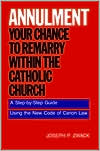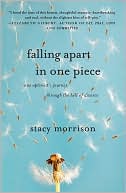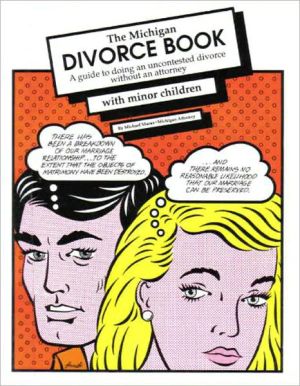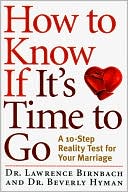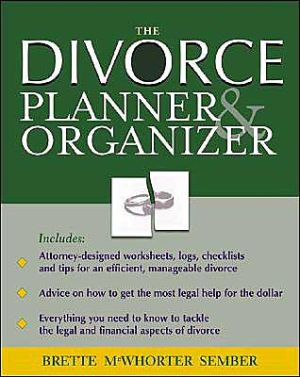Annulment--Your Chance to Remarry Within the Catholic Church: A Step-by-Step Guide Using the New Code of Canon Law
Here is the only book that explains fully in lay terms the grounds and procedures by which Roman Catholics who have undergone civil divorces can also have their former marriages annulled by the Church.\ In the last decade alone, annulements in the United States have increased from 350 to over 30,000. At present, there are an estimated eight million divorced American Catholics, banned from full participation in the Church if the remarry without obtaining an annulment. Many of these people...
Search in google:
Here is the only book that explains fully in lay terms the grounds and procedures by which Roman Catholics who have undergone civil divorces can also have their former marriages annulled by the Church. In the last decade alone, annulements in the United States have increased from 350 to over 30,000. At present, there are an estimated eight million divorced American Catholics, banned from full participation in the Church if the remarry without obtaining an annulment. Many of these people could obtain annulments — yet, until the publication of Annulment, the lack of proper information and guidance has discouraged the majority of them. This book makes available the rights of divorce Catholics under the Revised Code of Canon Law, which is now in effect. In everyday language, this authoritative handbook takes readers step by step through the process, defines the laws as they now exist, sorts through misconceptions and fears surrounding annulment procedures, dicusses the meaning and rationale behind the rules, lays out all the grounds (including the new psychological grounds), examines all factors (including costs), defines the various apporaches, and provides samples of the forms involved.The author, a lawyer himself, consulted with canon lawyers, priests, and laypeople, — some of whom have already used his manual with success.Annulment offers hope and solid help to the increasing number of people directly and indirectly affected by the divorce-remarriage-annulment problem. Zwack cuts cleanly through the Gordian knot of uncertainty to point the way for realistic, clear, effective solutions to this longstanding, anguished problem.
Chapter One\ Straight Answersto the Questions Most OftenAsked About Annulment\ In answering questions about annulment, there is the temptation to hide behind canon law Code numbers and long footnotes. I am able to resist this temptation for two reasons: First, I am not a canon lawyer. Second, I am not talking to canon lawyers.\ I. A Few Basics\ Just What Is an Annulment?\ An annulment is a declaration by a Tribunal to the Church that a marriage never legally existed as a sacramental union according to canon law.\ What Is the Difference Between an Annulment and a Divorce?\ A divorce is a dissolution by a civil court of an existing union; an annulment declares that there never was a valid union, despite appearances to the contrary. There are both civil law and Church annulments. We will, of course, be talking about the latter.\ How Many Catholics Could File for an Annulment?\ About 8 million living Roman Catholics have gone through the process of civil divorce in this country. This number increases by approximately 250,000 annually. Almost every one of these people will need to obtain an annulment if he or she wishes to remarry within the Church and the divorced spouse is still alive.\ Is It Only Catholic Marriages That Need to Be Annulled Before a Second Marriage Can Take Place?\ No. The Roman Catholic Church considers all marriages binding and all marriages between baptized Christians to be at least potentially sacramental. So from the Church's point ofview, all first marriages must be declared null by a Church court before a second marriage can take place. Obviously, two Muslims or two Protestants who wish to remarry are not going to worry about this, but if one of them is converted to Catholicism, any non-Catholic marriage must be set aside by the Church Tribunal before remarriage is possible. These converts add a small but significant number to the 8 million already mentioned who need to seek a Church annulment before remarriage within the Church.\ If I Am Legally Divorced Why Do I Need an Annulment?\ The Church does not consider the civil authorities capable of breaking the sacramental bond. In the eyes of the Church you are still considered married to your first spouse. If you are content to remain single the rest of your life there is no Church penalty for divorce, but if you ever wish to remarry you must have the first union annulled in the eyes of the Church. If you are divorced there is an eight-in-ten chance you or your former spouse will need to petition for an annulment someday, because those are the chances of your remarrying.\ What If I Do Not Have My First Marriage Annulled?\ You will not be able to marry in the Catholic Church. If you marry outside the Church, the Church will consider you to be living in an "adulterous union." That means you cannot receive the sacraments.\ You Mean I Would Be Excommunicated?\ No. You would still be allowed to attend Mass and participate to some extent in the life of the Church.\ But Doesn't a Divorce Mean Automatic Excommunication?\ This is a common misconception. There is no Church penalty for divorce. As long as you do not remarry, you may receive the sacraments and participate in the full life of the Church just as you would if you were not divorced. Many divorced Catholics quietly kick themselves out of the Church when there is no need. They are neither excommunicated nor barred from the sacraments. Much confusion stems from the fact that a divorced person who remarried used to incur the penalty of excommunication. This is no longer true.\ Well Divorce Is Still a Sin, Isn't It?\ No. This is another misconception. Divorce itself is considered neither right nor wrong. In fact, the Church fully recognizes that in many instances it is necessary to go through the civil divorce courts to protect one or the other partner in a failed marriage, and to provide for such things as child custody, child support, alimony, property division, and the like. The problem, as mentioned above, is when the divorced parties seek to remarry (as most do).\ II. Signs Of Change\ You Said Before That Catholics Who Divorce and Remarry Are No Longer Excommunicated. When Did That Change Take Place?\ In May 1977, the Catholic bishops of the United States removed the penalty of excommunication from Catholics who divorce and remarry.\ How Could They Do That?\ Excommunication for remarriage had been a rule only in the United States, and only since 1884. The American bishops imposed this sanction and they had every right to remove it.\ Does That Mean That Catholics Who Divorce and Remarry May Freely Receive the Sacraments?\ No, and unfortunately this is where much of the present misunderstanding enters in. Even though Catholics who divorce and remarry are no longer automatically excommunicated, they still are not supposed to receive the sacraments unless their former marriages are annulled. This never-never land has led many anguished Catholics to say that for practical purposes they are almost as bad off as they ever were, despite the fact that they are not excommunicated.\ What Is the Good of Not Being Excommunicated if a Person Still Cannot Receive the Sacraments? What Is the Difference?\ Aside from the right to attend Mass, there is the clear invitation to divorced and remarried Catholics to fully return to the Church and seek to be reconciled with it. In other words, the Church wants you to seek an annulment if you are entitled to it. A door is being held open that for a long time was shut. In Ministering to the Divorced Catholic, Fr. Young quotes Bishop Cletus O'Donnel as saying\ Those who have remarried and may have incurred the Church penalty of excommunication should see in this decision to remove the penalty a genuine invitation from the Church community. It is up to them to take the next step by approaching parish priests and diocesan Tribunals to see whether their return to full Eucharistic communion is possible.\ Annulment—Your Chance to Remarry Within the Catholic Church copyright © by Joseph P. Zwack. Reprinted by permission of HarperCollins Publishers, Inc. All Rights reserved. Available now wherever books are sold.
